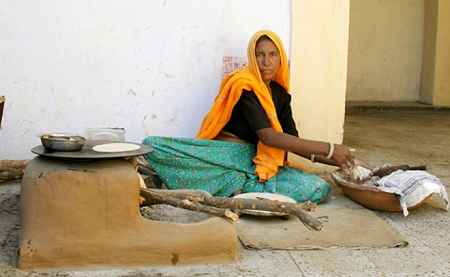SMARTS2
International programme brings together scientists and national funding agencies from around the globe

The SMARTS2 project aims to demonstrate how conservation agriculture, technology, and fore-knowledge of climate variation (e.g. water availability) can be integrated with small landholder farmers' existing knowledge and behaviours to increase adaptation to climate change. A better understanding of behaviour will lead to a greater adoption of conservation agricultural production systems that are resilient to climate change and will provide rural farmers with tools for self-reliance.
"I was asked to join the SMARTS2 project on improving smallholders' life in India, so they can adapt to climate change. The question came from agronomic, social and economic scientists, from Japan and Hawaii, I had never met before. The project is funded by a programme I had never heard of either: the Belmont Forum/FACCE-JPI Food Security and Land-Use Change programme. Projects do not usually start like this, because most of them are initiated through my network and funded by national funding agencies, the EU, or ERC. But I gladly accepted the invitation', says Wim van der Putten, researcher at Wageningen University and Research - Terrestrial Ecology, NIOO.
To better the world
"My drive to participate as an expert in this project, is connected with the question how I can improve the world. I am interested in how international collaboration, with its international view, can bring together international policy, science and society. And helping others not to make the same mistakes we in the West have made, by sharing our experiences and knowledge", according to Van der Putten. "Personally, it helps me also to get a broader view, which can help us here in the Netherlands. Also, this ties in with my drive to improve and broaden the knowledge on the living soil in an international setting; with the setup of the Soil Ecology Centre in Wageningen at the heart of it".
The Belmont Forum/ FACCE-JPI funding
Understanding the dynamic interactions between food security and land use change, a challenge confronting nearly all continents and of paramount interest to policy-making, science and society, requires a global strategic approach and cooperation between national research programmes. To this end, the Joint Programming Initiative on Agriculture, Food Security and Climate Change (FACCE-JPI) together with the Belmont Forum (The international group of funding agencies working on knowledge to support human action and adaptation to global environmental change) have launched a Collaborative Research Action (CRA). Funders and research institutions in this programme come from Cyprus, Ireland, Israel, the Netherlands, Switzerland, Romania, France, the UK, Australia, Brazil, India, Japan, South Africa and the USA.
Researchers in the spotlight with projects funded through jointly programmed calls
One of the aims of joint programming is aligning research & research funding and this usually results in a joint call to which proposals can be submitted. In a series of interviews, researchers from Wageningen University and Research present their granted projects from such joint calls.
